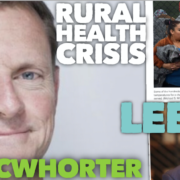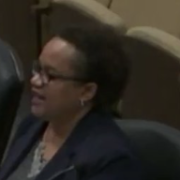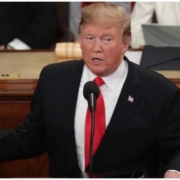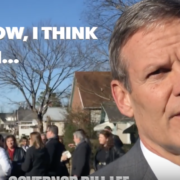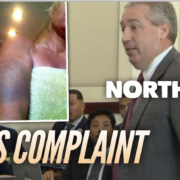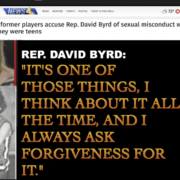TN HEALTH CRISIS: Gov. Lee’s Finance Commish Answers Medicaid Expansion Questions (Very Poorly)
There’s been a lot going on, so it has taken us a bit to get to this, but a few weeks back The Tennessean had Governor Bill Lee’s finance commissioner Stuart Mcwhorter on their podcast to answer questions about the Rural Health Care “Task Force” they’ve assembled to try to address the nightmare that is rural health in Tennessee, where we’re #1 in MEDICAL BANKRUPTCIES and RURAL HOSPITAL CLOSURES PER CAPITA, at the bottom in infant and maternal mortality and opioid deaths, the list goes on.
Just last week we learned in 2017 alone there were 52 mothers who died preventably from lack of Tenncare, making it clear not expanding Medicaid is nothing short of policy murder.
Natalie Allison of The Tennessean asked Mcwhorter the questions. Understandably, The Tennessean had quite a few of them considering reporters were kept out of the closed-door task force meetings.
Below are some excerpts. You can listen to the whole interview HERE.
We’ll pick it up where Natalie asks Mcwhorter a very straightforward question:
NATALIE ALLISON: So obviously rural hospital closures is something we’ve heard a lot about from people who live in those areas who are concerned with that. The other thing is what you just mentioned – the number of uninsured people in the state. So what kind of feedback were you guys hearing on how the state can address that?
MCWHORTER: It’s the #1 question we got. And I think in light of the fact that we have a number of uninsured Tennesseans, you want to understand what the causes of those things are. Some of it is a lack of workforce opportunities. We were really making sure we were bringing that discussion into the fold, around economic development incentives for companies to relocate to rural parts of the state.
Notice that Mcwhorter immediately takes the question of stopping rural hospital closures and getting people insured to employment- anything to steer the conversation away from government-based solutions and towards “free market capitalism”, but even that is a bogus premise since Mcwhorter is already talking about how the government can encourage it through tax incentives (and what he would later refer to as “seed funding”).
TRANSLATION: They don’t mind government intervention as long as that intervention goes to corporations, rather than directly to us
This answer is also problematic for another reason: PEOPLE ARE HURTING NOW.
Again, we just found out over 50 mothers DIED from not having expanded Medicaid in 2017 alone. So while Lee & Mcwhorter assemble their “task force” and talk vaguely about economic incentives, 1 mother is dying unnecessarily each week.
This is nothing short of POLICY MURDER.
Another point: Mcwhorter is heralding employer-based insurance as the solution because they want to keep us reliant on our employers for insurance, because when we’re reliant on them, we’re compliant. Take GM canceling the insurance of striking UAW workers, for example.
As long as we depend on them for our health care, they know it will be much harder for workers to push back against our corporate overlords.
Mcwhorter continues:
MCWHORTER: If you aren’t employed and don’t have the skills, we tie in a lot of what we’re discussing with the governor’s initiatives around vocational education and focusing on some of the trades and technical education. But it starts even before that. You start really getting into some of the – I go back to the social determinants…
This is where it starts to get weird.
MCWHORTER: …if you can’t get a child immunizations, or early childhood reading, or things you really want to focus on when a child is born in the state, those things continue to compound over time, and won’t allow people to either get a job or get out of their circumstances. So we really try to get to the root causes of some of these issues.
As a reminder, the question is: How do we stop hospitals from closing and get people insured so they can see doctors.
Think about how far afield we’ve gone here. To address a question about hospitals closing NOW and people being uninsured NOW, Mcwhorter is talking about children being vaccinated and learning how to read, and how that may lead to them not having insurance as adults – because it makes them less employable.
Again, a mother is dying every week. This obvious deflection is not helping them NOW.
Stuart goes on:
MCWHORTER: And if they’re employed, hopefully they have access to their employer’s insurance. If they’re not employed, what can we be doing to train and educate so they can get employed.
They don’t want us reliant on government, but boy do they ever want us begging our bosses for our lives.
Also, a key word here was “hopefully”. We have a five-alarm health care fire in Tennessee, where again we’re #1 in MEDICAL BANKRUPTCIES and RURAL HOSPITAL CLOSURES PER CAPITA, and Bill Lee’s health care task force mouthpiece is saying “hopefully” if we address some of these issues today’s kids may get employer-based health insurance in 25 years or so.
It gets worse.
Mcwhorter then goes on to blame mental illness for why some people don’t have insurance.
Yes, seriously:
MCWHORTER: And if you’re still up against other issues that prevent that (meaning getting a job) – and a lot of it is mental. We’re all aware of what’s going on around the state with that. We’re trying to address the mental disorders, the opioid crisis, all the things that contribute to that as well.
Aside from the obviously insulting implication that the hundreds of thousands of low-income folks who are falling into the Medicaid gap are either mentally ill or addicted to opioids, there’s a glaring flaw in what Mcwhorter is saying here: Studies have found Medicaid expansion is critical for fighting the opioid crisis.
There’s a reason opioid deaths are going up in our state while they go down in the states around us – it’s because we didn’t expand Medicaid. While getting Suboxone online is now available, the crisis is bigger than treatments being available online. The crisis is so big that we need to tackle it from multiple angles, from online treatment to Medicaid to prevention.
We’ve rejected $7 BILLION and counting. You think that wouldn’t help us deal with the opioid crisis and other issues? Of course it would. That’s not politics, it’s math.
Natalie Allison then speaks again for the first time since asking the original question, and asks Mcwhorter directly about Medicaid expansion (thank you Natalie):
NATALIE ALLISON: There are people who for years have been saying EXPAND MEDICAID, EXPAND MEDICAID. I have a feeling that’s not going to be the strategy you all are gonna be recommending to the governor as part of this task force, since he’s made it clear that’s not something he’s going to do. Is that safe to say?
MCWHORTER: I think it’s safe to say. A couple things. One is – he said that. The way I interpret that is this is a long-term plan with a long-term solution we need to look at. It’s a heavy lift. It’s a lot of hard work. It’s easy to look at something that’s immediate – i.e. Medicaid Expansion – but I think there’s a deeper issue here that we really want to look at.
(Did we mention one mother is dying each week that didn’t have to die while Mcwhorter and Lee “look at” deeper issues with their “task force”?)
MCWHORTER: Now I say all that to say, the legislature did pass a law around the Block Grant. If we don’t negotiate something, that goes away. Does Medicaid Expansion come back? I don’t think it comes back just in the context of Medicaid Expansion. But I think the same principles that are around Medicaid Expansion… I mean the goal around Medicaid Expansion is to provide access, coverage to more people. That’s what our goal is. We’re trying to do the same thing, it’s just getting there is going to be a little different.
Why? You’re literally saying Medicaid expansion does the things you want to do. The tool is sitting there. Why not use it?
Politics, that’s why. Plain and simple. Also, it’s worth noting that the Block Grant Mcwhorter is talking about is A) Illegal probably, and B) DEEPLY unpopular. Nearly 1800 people spoke up about it at the public hearings last month, and a whopping NINE were in favor of it.
Back to the conversation – Natalie Allison picked up on Mcwhorter seeming to say Medicaid Expansion’s principles are what they want to accomplish, so she presses him on it:
NATALIE ALLISON: So you just said something really interesting – you said you might take the principles of Medicaid Expansion and apply that to whatever other solution you all would use as your Plan B. Can you talk a little bit more about that? And clarify whether Medicaid Expansion would be totally off the table for your recommendations?
MCWHORTER: I guess what I’m saying with the principle applies is the ultimate outcomes. The goal of
Medicaid Expansion is to provide more access – more insurance to more people – the Governor doesn’t disagree with that. We also have to be fiscally responsible. And so we have to look at the right balance.
“Fiscally responsible”? Is rejecting $7 Billion that would help our state “Fiscally responsible”? Who is that helping?
They love talking about running the state “like a business” – what boss wouldn’t be fired for rejecting an injection of $7 Billion?
If what Mcwhorter means is the state would’ve had to match 10% of the expansion dollars – our state’s own hospitals said they would COVER THE DIFFERENCE because they need the funds so badly, and wanted to stem the tide of hospital closures.
No, Governor. Rejecting Medicaid Expansion is the opposite of “fiscally responsible”. It’s both fiscally and morally irresponsible.
Our state is suffering. Our mothers are dying. There’s a reason our last Republican governor Haslam called not expanding Medicaid one of his biggest regrets.
Meanwhile Governor Lee and this Republican Supermajority, who we’ve just learned have been sitting on $730,000,000 in TANF block grant funds intended to help poor people, now want to get their hands on billions in Medicaid block grant dollars intended for poor people’s health care.
Downright terrifying.
After 5+ years of blocking Medicaid Expansion, you’d think they’d have better answers than this.
Employer-based coverage is sometimes adequate — IF it’s offered. Tennessee leads the nation in minimum wage jobs. Those workers should be able to go to the doctor too.
Thanks for reading! We’re an independent, reader-supported site that depends entirely on you to help us keep holding our public officials accountable and “Yelling the Truth”, so please consider chipping in a $3, $5, or $10 monthly and we’ll keep telling the stories nobody else will:

